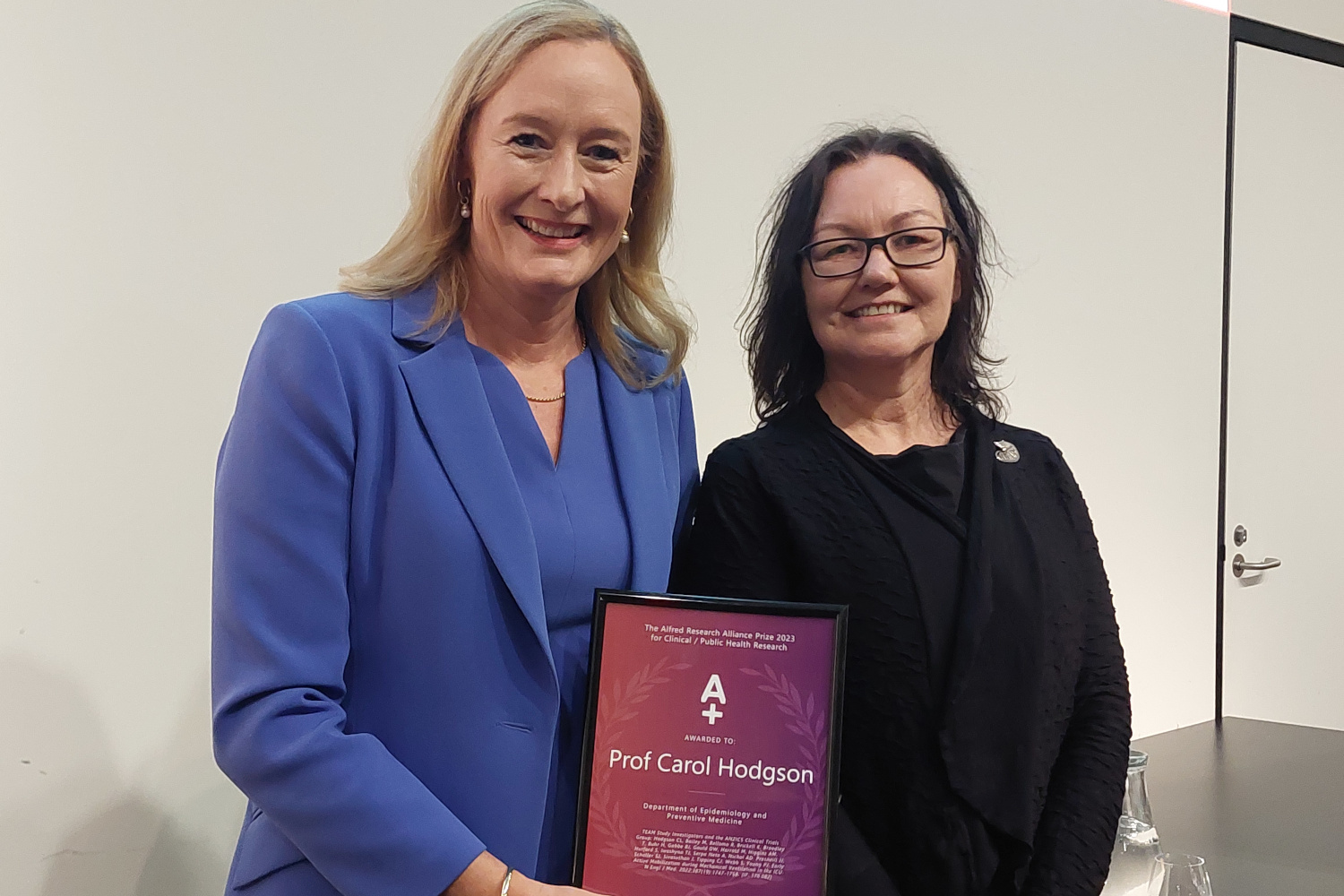Spotlight on intensive care research
New study will change practice around mobilisation of intensive care patients

Critical care researcher Prof Carol Hodgson won the 2023 Alfred Research Alliance in Clinical Research for her efforts leading the TEAM Trial, which published its primary findings in NEJM late last year.
Prof Hodgson received her award from Alfred Health Week Keynote speaker, Prof Karen Adams.
The study informs practice around early mobilisation of ICU patients - in essence, getting them up and moving sooner - to improve their overall recovery. It fills an evidence gap around when and how to get them moving. The study was published in the New England Journal of Medicine and provides insights into optimum timing and intensity of patient mobilisation.
The study found that compared to standard care which includes some early rehabilitation and mobilisation, additional early mobilisation did not affect the number of days alive and out of hospital, but was associated with increased adverse events. The concept of early mobilisation has recently been embraced by the medical community as a way to improve rehabilitation in ICU patients, but has been deployed with a lack of evidence around timing and dosage. This study fills that knowledge gap, and will change international practice.
Professor Hodgson is a physiotherapist-researcher who specialises in intensive care medicine. She says, “Many people are shocked to learn the severity and duration of the side-effects of spending time in an ICU. These patients often experience physical and mental health effects that impact their health and quality of life for months or years after discharge. We wanted to determine how to safely use early mobilisation to improve recovery.” Approximately 13–20 million people receive treatment in intensive care units (ICUs) annually. ICU-acquired weakness occurs in approximately 40 per cent of patients and is associated with high mortality risk, prolonged hospitalisation, and impaired recovery.
The study team randomly assigned 750 adult ICU patients receiving invasive mechanical ventilation to an early mobilization group, or usual care. The early mobilization intervention aimed to get patients mobile to the highest activity level possible from the start.
The adverse events seen in the early mobilization group included heart rhythm changes, altered blood pressure and decreased blood oxygen levels and others. Professor Hodgson says, “The adverse events seen were short-term and certainly aren’t deal-breakers for the concept of early mobilization. However, they help us understand more precisely how early, and how vigorously we should be engaging patients, and the warning signs staff should be watching for when conducting early mobilization.”
The prestigious journal – ranked within the world’s top five medical journals by most ranking systems – timed the release of the paper around the European Society of Intensive Care Medicine Conference in Paris, where Professor Hodgson was awarded Honorary Membership of the Society in recognition of her significant contributions to intensive care medicine.
